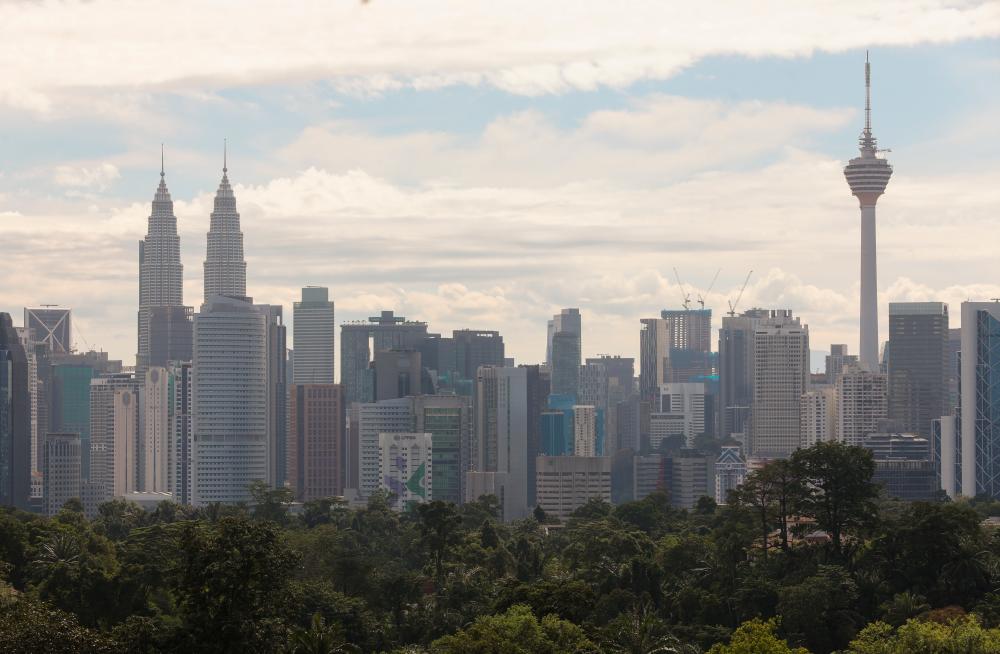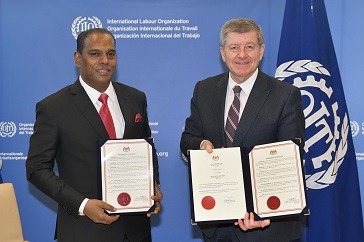THE Malaysian government has ratified the International Labour Organisation (ILO) Protocol of 2014 to the Forced Labour Convention, making it the 58th country in the world and the second in Asean to do so.
With this ratification, Malaysia has renewed its commitment to fight against forced labour in all its forms including human trafficking.
Adopted during the 2014 International Labour Conference, the Protocol reinforces the international legal framework for combating forced labour and commits states to take measures to combat forced labour including trafficking in persons, debt bondage or forced domestic labour; sanction perpetrators; and protect victims, including by ensuring their access to justice and effective legal remedies.
On the ratification Human Resources Minister Datuk Seri M. Saravanan said that the it is a testament to the country’s commitment in addressing and eradicating forced labour which is an infringement of human rights that should not be tolerated.
“Malaysia has taken various initiatives to address issues related to forced labour, particularly in relation to migrant workers due to their vulnerability and the country’s high reliance on foreign workers in labour intensive sectors and industries,” he remarked.
“In this regard, the relations between the ILO and Malaysia have undergone significant development as demonstrated by the adoption in 2019 of the Decent Work Country Programme, which outlines the cooperation between our country and the ILO until 2025.”
Saravanan also noted that the Government has strengthened its collaboration with various stakeholders including the source countries for migrant workers by way of bilateral agreements.
“We appreciate the technical support provided by the ILO throughout the process of this ratification, which will pave the way forward in advancing social justice and promoting decent work in our country,” he commented.
ILO director-general Guy Ryder sees the move as an important step that strengthens the measures that have already been taken at the national level to combat forced labour, including human trafficking.
He elaborated that the protocol complements existing ILO standards on the subject by providing a framework to tackle forced labour in the contemporary global economy.
“This ratification is all the more important since the ILO’s global estimates show the urgency of adopting immediate and effective measures to eradicate forced labour and trafficking,” he said.
He also sees the ratification as a step towards the country’s progress in achieving the United Nations’ Sustainable Development Goals 2030.
On the national level Malaysia has continuously updated its national anti-trafficking legislation.
The 2007 Anti-trafficking in Persons and Anti-smuggling of Migrants Act was amended in 2015 and 2021 to incorporate a more victim-centred approach regarding permission to move freely, provision of allowance and payment of compensation, as well as a definition of trafficking in persons.
Malaysia also has a National Action Plan on Trafficking in Persons for the period 2021-2025. – March 22, 2022










